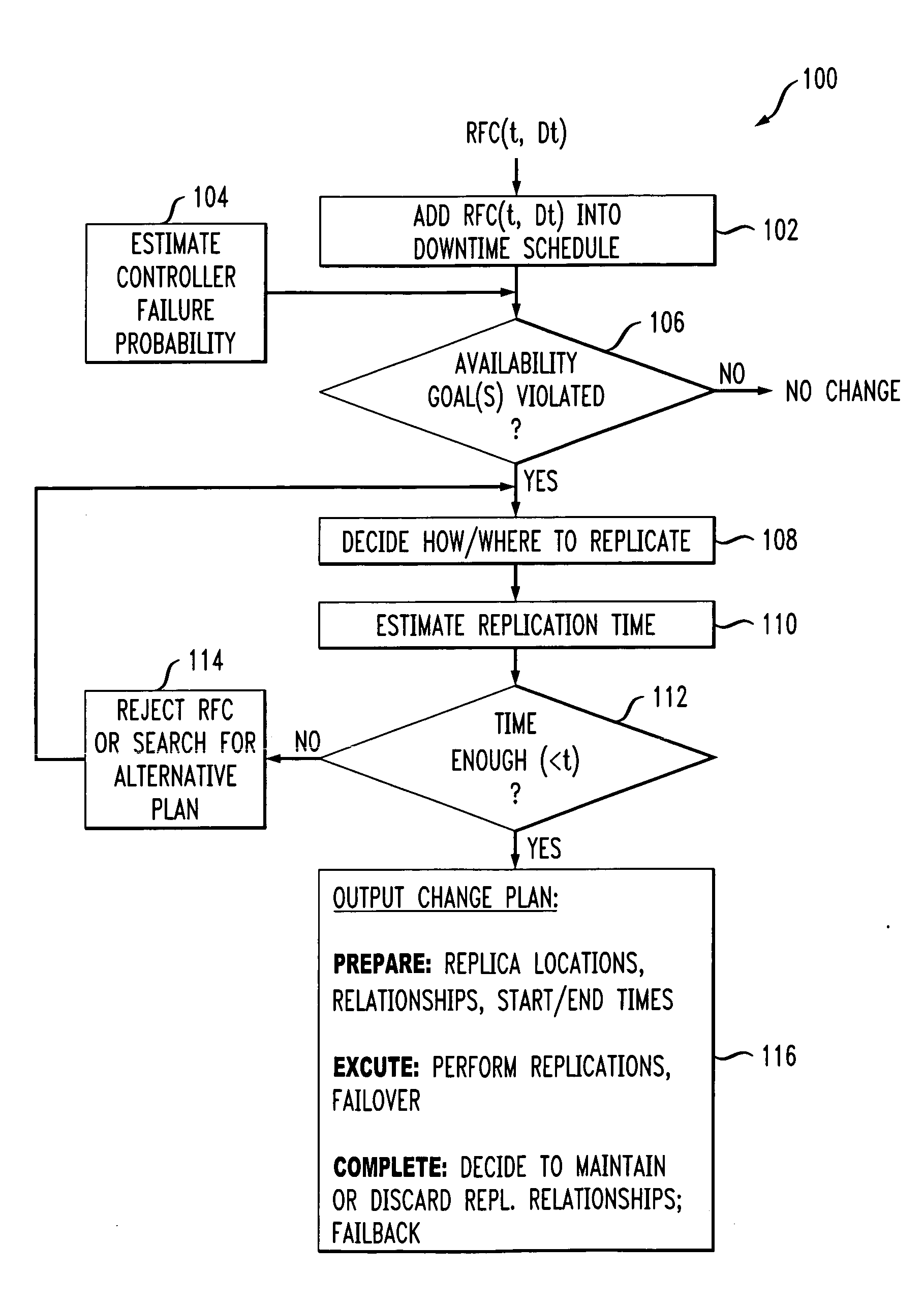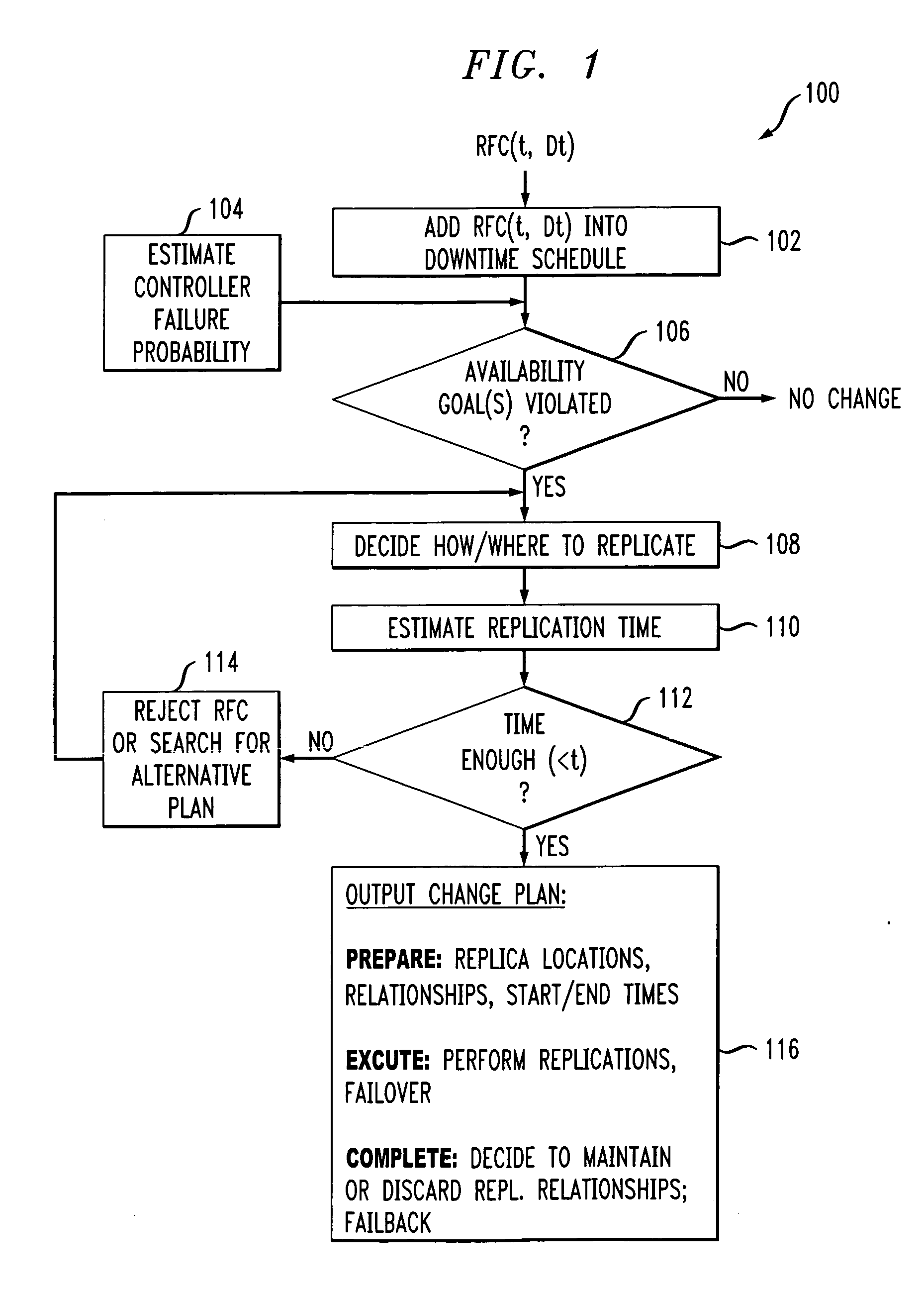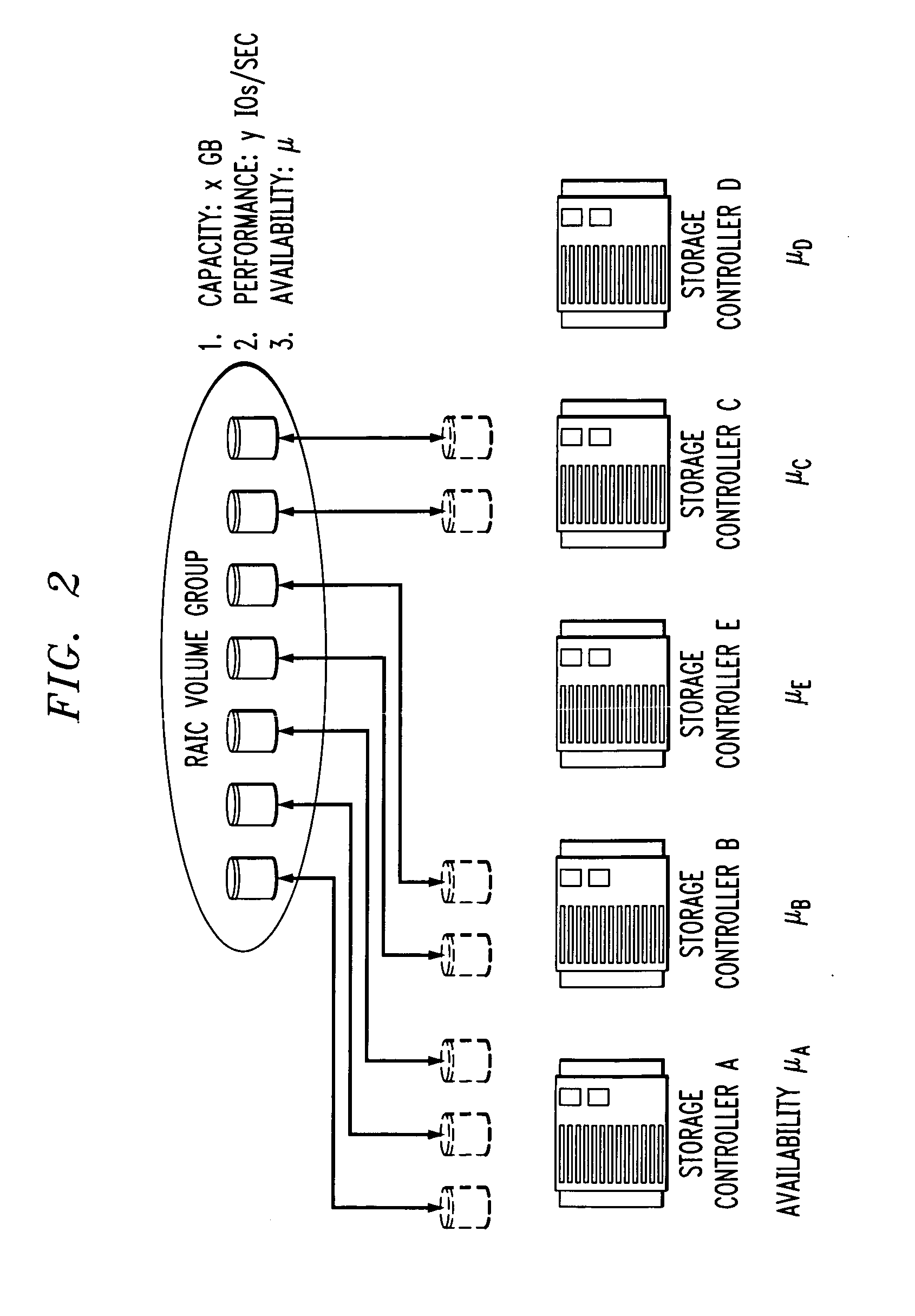Controlling computer storage systems
a computer storage and computer technology, applied in the field of information technology, can solve the problems of inability to easily extend from single controller to system of multiple storage controllers, error-prone and expensive manual availability management in large data centers,
- Summary
- Abstract
- Description
- Claims
- Application Information
AI Technical Summary
Benefits of technology
Problems solved by technology
Method used
Image
Examples
example 1
[0063]With reference to FIGS. 2 and 3, consider five storage controllers A, B, C, D, E with availability μA, μB, μC, μD, μE, respectively. In this example, we allocate a dataset of size x GB with performance y IO / s and overall availability μ using the volume allocation and placement procedure described earlier. In the first (initial allocation) phase, seven volumes are allocated based on capacity and performance considerations on three controllers (A, B, C). Following initial allocation, in the second phase of the allocation algorithm, volumes from controllers B and C (presumably the controllers with the lowest availabilities μB and μC) are selected to be replicated to equal number of volumes on controllers D, E.
[0064]The estimate of the overall probability is based on the following theorem from the Theory of Probabilities, which states that for any two events A and B, the probability that either A or B or both occur is given by:
Pr{A or B}=Pr{A}+Pr{B}−Pr{A and B} (5)
[0065]Assuming ...
example 2
[0069]Referring to FIGS. 4 and 5, consider three datasets with different availability goals (0.9999, 0.999, and 0.9 from top to bottom). Consider also seven controllers (SC1-SC7) each with a different availability outlook expressed in their timeline of known, expected outages. The timelines in FIG. 4 describe the known, expected outages for each controller. For the first six controllers we use mostly deterministic information. The last controller (SC7), for which there is no known outage, is considered suspect due to a recent firmware upgrade. Its probabilistic availability estimate is therefore low.
[0070]As in the previous example, in the first (initial allocation) phase of the algorithms, volumes for each dataset are assigned to storage controllers based on capacity and performance goals. For the first dataset, a single volume (A) is allocated on SC1. For the second dataset, three volumes (B, C, and D) are allocated on SC3-SC5. Finally, for the third dataset a single volume (E) is...
PUM
 Login to View More
Login to View More Abstract
Description
Claims
Application Information
 Login to View More
Login to View More - R&D
- Intellectual Property
- Life Sciences
- Materials
- Tech Scout
- Unparalleled Data Quality
- Higher Quality Content
- 60% Fewer Hallucinations
Browse by: Latest US Patents, China's latest patents, Technical Efficacy Thesaurus, Application Domain, Technology Topic, Popular Technical Reports.
© 2025 PatSnap. All rights reserved.Legal|Privacy policy|Modern Slavery Act Transparency Statement|Sitemap|About US| Contact US: help@patsnap.com



